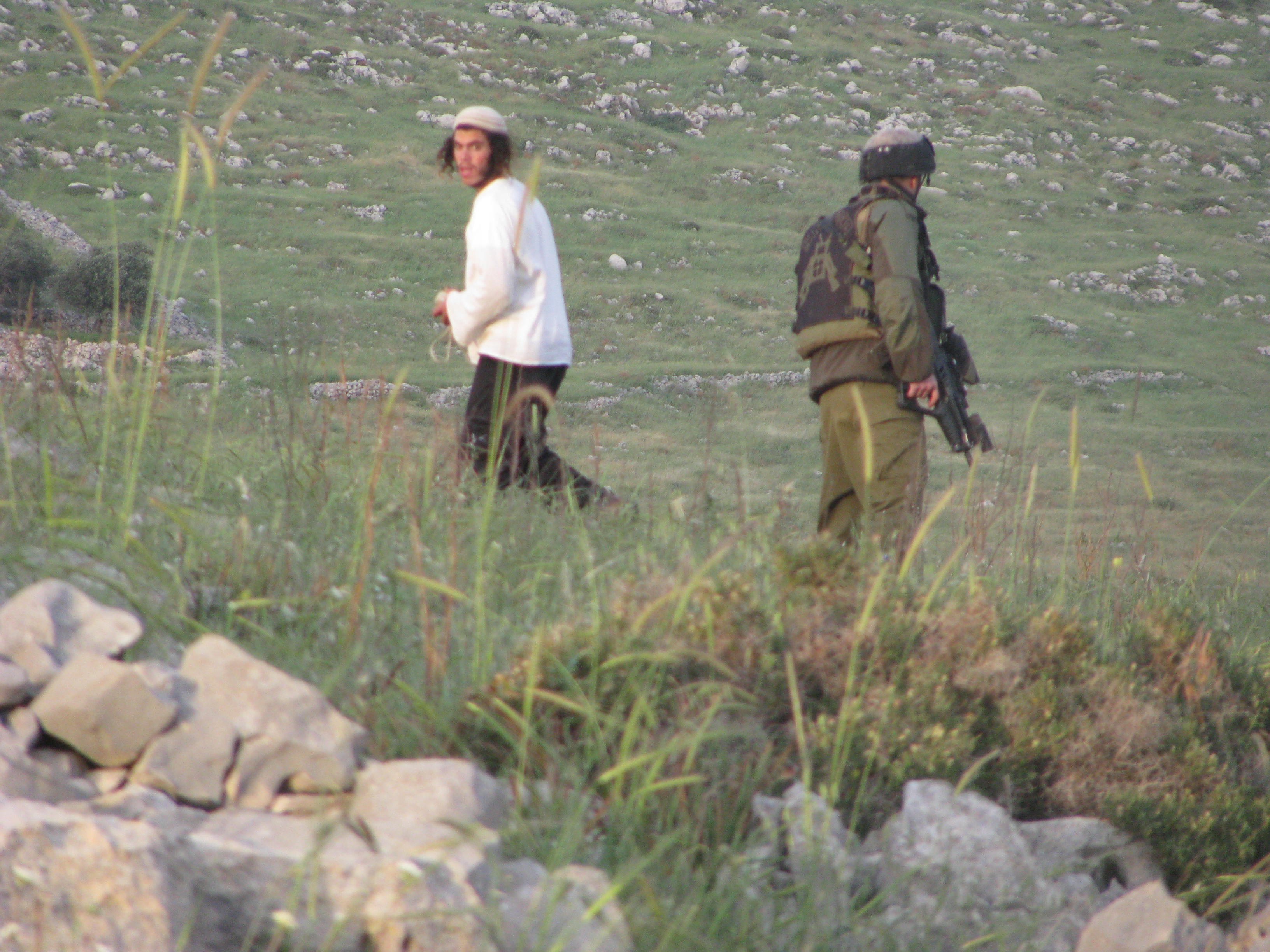Author: ISM Media Group
-
Settlers Take Land, Soldiers Do Nothing
In the area of Susya in Hebron, an illegal settler sets out to farm crops on land owned by local Palestinians. Soldiers refuse to act, even after human rights workers explain that Palestinians have documents which prove the land is theirs, and have gone to the police already about this matter.
-
Kiryat Arba settlers throw party on privately owned Palestinian land
At 1:40pm a group of international human rights workers received a call from a Palestinian man, Anan Jabouri, who lives on land he owns directly next to Kiryat Arba settlement. Jabouri told a local Palestinian resident, and member of ISM, that a large group of Israeli settlers had set up a tent on his land…
-
Tulkarm Struggles Against the Wall, Settlements and Israeli Chemical Factories
The Tulkarm area covers the city of Tulkarm and 31 villages in its surrounding areas. In this area live approximately 180,000 inhabitants. About 45,000 live in the city itself, 18,000 live the larger refugee camp and 8,000 in the smaller camp. Tulkarm is only 13 km away from the Mediterranean Sea by the Israeli town…

